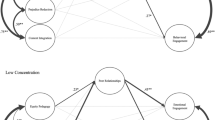Abstract
In this paper, I explore the experiences of fourth and fifth grade students engaged in Beyond Today, an urban after school program, that aimed to enact a social reconstructionist multicultural curriculum. The program gathered White, Black, and Latino/a youth to explore issues of discrimination and social justice and develop leadership towards social change. This paper focuses on the complex nature of students’ responses to a multicultural curriculum that foregrounded conversations about race and inequity. Students were seen to build ties of friendship across racial lines and develop activist skills of social critique. On other occasions, they maintained borders, distancing themselves from students of different races. After an overall review of the students’ varied reactions to the Beyond Today curriculum, I highlight specific vignettes that show how these tensions can simultaneously emerge within particular incidents. This research can be of use to teachers and teacher educators when envisioning and planning for student responses to multicultural curriculum.
Similar content being viewed by others
Notes
The name of this program, Beyond Today, along with the names of the schools and students are pseudonyms so to protect the anonymity of those who participated in this program.
References
Apple, M. W. (1979). Ideology and curriculum. London: Routledge.
Banks, J. A. (2006). Approaches to multicultural curriculum reform. In E. Lee, D. Menkart, & M. Okazawa-Rey (Eds.), Beyond heroes and holidays: A practical guide to K-12 anti-racist, multicultural education and staff development. Washington, DC: Teaching for Change.
Berlin, I. (1990). The pursuit of the ideal. In H. Hardy (Ed.), The crooked timber of humanity: Chapters in the history of ideas (pp. 1–19). New Jersey: Princeton University Press.
de los Reyes, E., & Gozemba, P. A. (2002). Pockets of hope: How students and teachers change the world. Wesport: Bergin and Garvey.
Dyson, A. H., & Genishi, C. (2005). On the case. New York: Teachers College Press.
Fine, M., Weis, L., & Powell, L. C. (1997). Communities of difference: A critical look at desegregated spaces created for and by youth. Harvard Educational Review, 67(2), 247–284.
Fletcher, S. (2000). Education and emancipation: Theory and practice in a new constellation. New York: Teachers College Press.
Helms, J. E. (1990). Black and white racial identity: Theory, research, and practice. Westport: Greenwood.
Holstein, J. A., & Gubrium, J. F. (1995). The active interview. Thousand Oaks, CA: Sage.
Janesick, V. J. (1994). The dance of qualitative research: Metaphor, methdolatry, and meaning. In N. L. Denzin & Y. S. Lincoln (Eds.), Handbook of qualitative research (pp. 209–219). Thousand Oaks: Sage Publications.
Kohn, A. (1990). The brighter side of human nature: Altruism and empathy in everyday life. New York: Basic Books, Inc., Publishers.
Lampert, M. (1985). How do teachers manage to teach? Perspectives on problems in practice. Harvard Educational Review, 55(2), 178–194.
Lather, P. (1986). Issues of validity in openly ideological research: Between a rock and a soft place. Interchange, 17(4), 63–84.
Lee, E. (2006). Anti-racist education: Pulling together to close the gaps. In E. Lee, D. Menkart, & M. Okazawa-Rey (Eds.), Beyond heroes and holidays: A practical guide to K-12 anti-racist, multicultural education and staff development (pp. 3–12). Washington, DC: Teaching for Change.
Lincoln, Y. S., & Guba, E. G. (2003). Paradigmatic controversies, contradictions, and emerging confluences. In N. K. Denzin & Y. S. Lincoln (Eds.), The landscape of qualitative research (pp. 253–291). Thousand Oaks: Sage Publications.
Nieto, S. (2004). Affirming diversity: The sociopolitical context of multicultural education, 4th ed. Boston: Pearson.
Noguera, P. A. (2001). Racial politics and the elusive quest for excellence and equity in education. Education and Urban Society, 34(1), 18–41.
Noguera, P. A. (2003). City schools and the American dream: Reclaiming the promise of public education. New York: Teachers College Press.
Sleeter, C. E. (1993). Multicultural education: Five views. The Education Digest, 58(7), 53–57.
Sleeter, C. E. (2005). Un-standardizing curriculum: Multicultural teaching in the standards-based classroom. New York: Teachers College Press.
Sue, D. W. (2003). Overcoming our racism: The journey to liberation. San Francisco: Jossey-Bass.
Tatum, B. D. (1997). “Why are all the black kids sitting together in the cafeteria?” And other conversations about race. New York: Basic Books.
Thompson, A. (1997). For: Anti-racist education. Curriculum Inquiry, 27(1), 7–44.
Vela-McConnnell, J. A. (1999). Who is my neighbor? Social affinity in a modern world. Albany: State University of New York Press.
Young, I. M. (1990). Justice and the politics of difference. Princeton: Princeton University Press.
Author information
Authors and Affiliations
Corresponding author
Additional information
An erratum to this article can be found at http://dx.doi.org/10.1007/s11256-009-0124-3
Rights and permissions
About this article
Cite this article
Epstein, S.E. “Who are your Friends?” Complexities in Multicultural Education. Urban Rev 42, 39–57 (2010). https://doi.org/10.1007/s11256-008-0118-6
Published:
Issue Date:
DOI: https://doi.org/10.1007/s11256-008-0118-6




